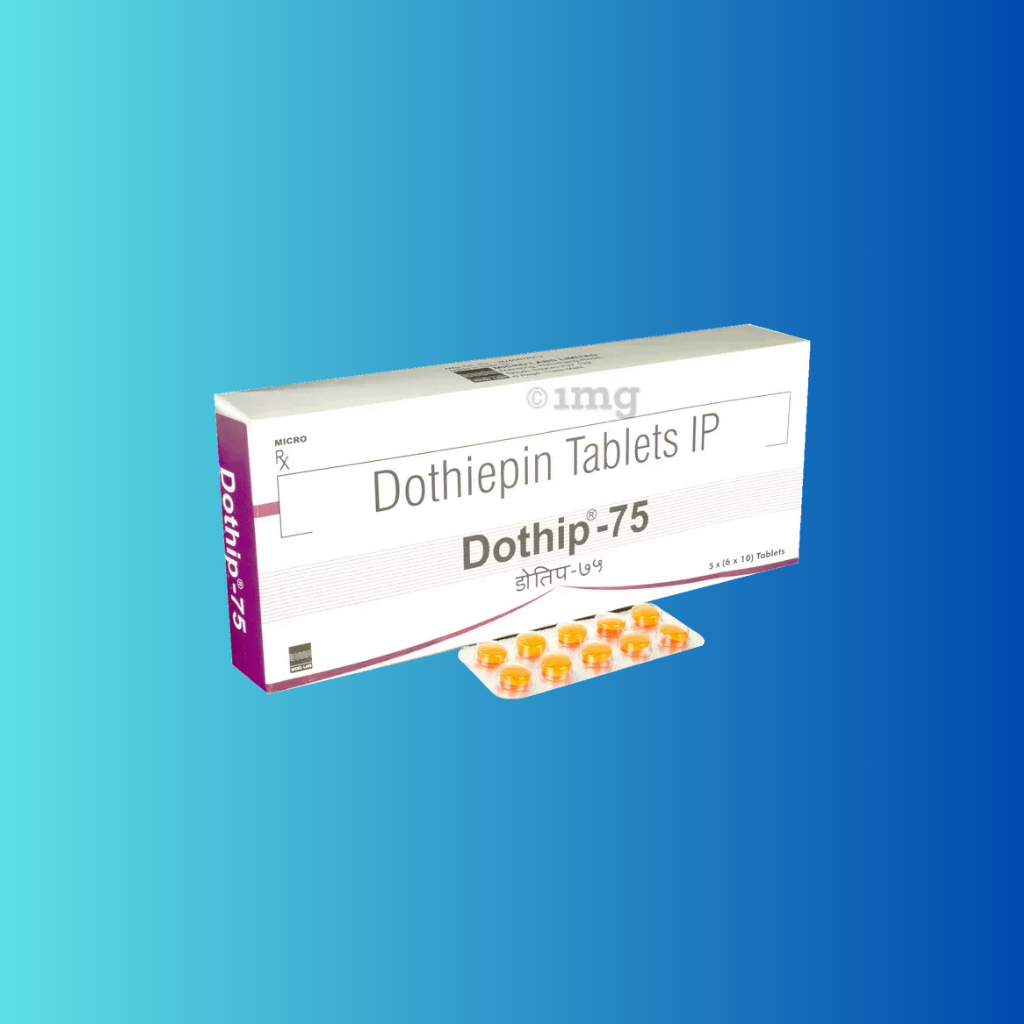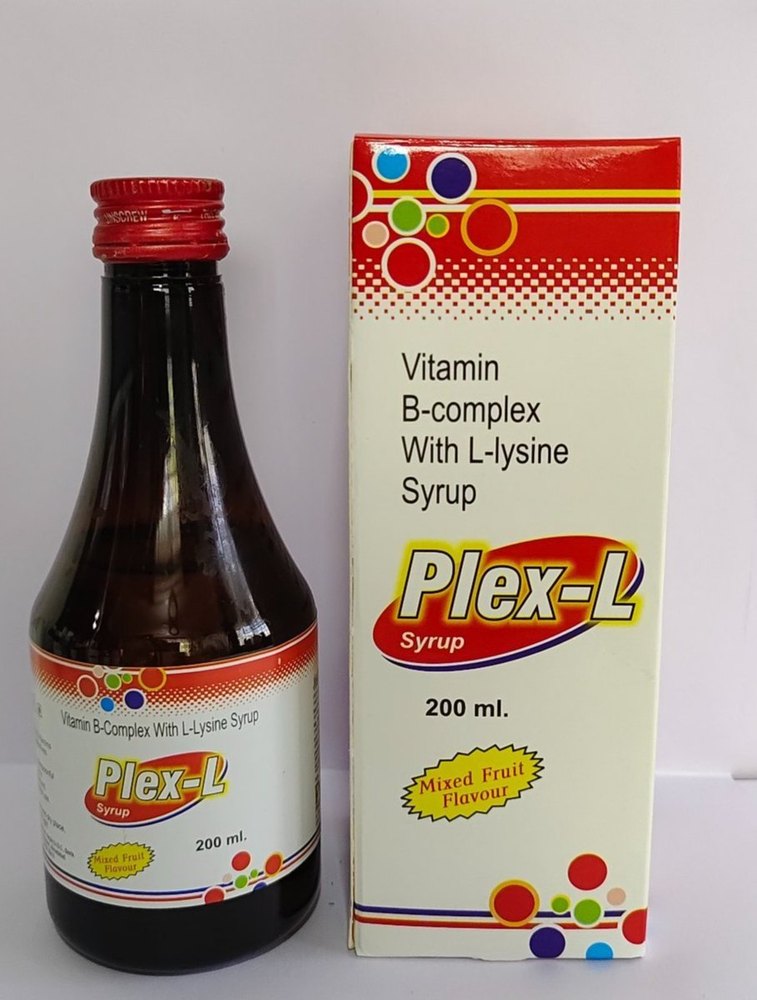Dothip 75mg
Dothip 75mg” refers to a tablet containing 75mg of Dosulepin hydrochloride, formerly known as Dothiepin. It is a tricyclic antidepressant (TCA) that also possesses anxiolytic (anti-anxiety) and sedative properties.
While it is an effective antidepressant, Dosulepin has a relatively low therapeutic index (meaning a small difference between the effective dose and a toxic dose), especially in overdose, leading to a higher risk of serious side effects. For this reason, it is generally not a first-line antidepressant and is often reserved for patients who have not responded to or cannot tolerate other antidepressant therapies.
₨165.00
Ask about productDescription
“Dothip 75mg” refers to a tablet containing 75mg of Dosulepin hydrochloride, formerly known as Dothiepin. It is a tricyclic antidepressant (TCA) that also possesses anxiolytic (anti-anxiety) and sedative properties.
While it is an effective antidepressant, Dosulepin has a relatively low therapeutic index (meaning a small difference between the effective dose and a toxic dose), especially in overdose, leading to a higher risk of serious side effects. For this reason, it is generally not a first-line antidepressant and is often reserved for patients who have not responded to or cannot tolerate other antidepressant therapies.
Active Ingredient:
- Dosulepin (or Dothiepin) 75mg: A tricyclic antidepressant.
Mechanism of Action: Dosulepin primarily works by:
- Inhibiting Reuptake of Neurotransmitters: It blocks the reabsorption of both norepinephrine (noradrenaline) and serotonin (5-hydroxytryptamine) from the nerve endings in the brain. This increases the availability of these neurotransmitters in the synaptic cleft, thereby enhancing their effects and helping to improve mood.
- Antagonism of Receptors: It also has affinity for various receptors, including:
- Histamine (H1) receptors: This contributes to its sedative effects, which can be beneficial for patients with depression accompanied by insomnia.
- Muscarinic acetylcholine receptors: This leads to common anticholinergic side effects.
- Alpha-adrenergic receptors.
Key Uses: Dothip 75mg (Dosulepin) is primarily indicated for:
- Treatment of depressive illness: Especially when accompanied by anxiety and/or insomnia, due to its anxiolytic and sedative properties. It’s typically used when other antidepressants are ineffective or not tolerated.
- Anxiety disorders: Used for generalized anxiety disorder.
- Neuropathic pain: Can be used to relieve nerve pain, similar to other TCAs like Amitriptyline.
- Chronic pain (e.g., fibromyalgia): May be used for its analgesic properties.
- Insomnia associated with depression.
Side Effects
Dosulepin has a notable side effect profile, including common anticholinergic effects and potential cardiovascular risks.
Common Side Effects:
- Drowsiness/Sedation: Very common, often leading to it being taken at bedtime.
- Dry Mouth (Xerostomia): Very common anticholinergic effect.
- Constipation: Common anticholinergic effect.
- Blurred Vision: Common anticholinergic effect, especially at higher doses.
- Dizziness/Lightheadedness: Especially when standing up quickly (orthostatic hypotension), due to its effect on blood pressure.
- Increased heart rate (Tachycardia)
- Difficulty in urination (urinary retention)
- Tremor
- Increased appetite and weight gain
- Sweating
- Headache
- Nausea, vomiting, indigestion
- Sexual dysfunction (decreased libido, erectile dysfunction).
- Confusion (especially in elderly patients).
Less Common / Potentially More Serious Side Effects (seek medical attention immediately if experienced):
- Cardiac Problems: Arrhythmias (irregular heartbeat, including ventricular tachycardia and torsades de pointes), conduction disorders, heart block, heart failure, myocardial infarction (heart attack). These are a significant concern, especially in overdose or in patients with pre-existing heart conditions. ECG monitoring may be required.
- Suicidal Thoughts or Behavior: Especially in young adults (under 25) at the beginning of treatment or with dose changes. Patients should be closely monitored.
- Seizures (Fits): Dosulepin can lower the seizure threshold.
- Severe Allergic Reactions/Skin Rashes: Rare but serious, including severe widespread rash, blistering, or peeling skin (e.g., Stevens-Johnson Syndrome).
- Liver Problems: Symptoms like jaundice (yellowing of skin/eyes), dark urine, persistent nausea/vomiting, severe stomach pain.
- Blood Dyscrasias: Very rare but serious, such as agranulocytosis (severe reduction in white blood cells), leading to increased susceptibility to infections (fever, sore throat, mouth ulcers).
- Mania or Hypomania: Can be triggered in patients with undiagnosed bipolar disorder.
- Neuroleptic Malignant Syndrome (NMS): A rare but life-threatening reaction with symptoms like high fever, muscle rigidity, altered mental status, and autonomic instability.
- Paralytic ileus: Severe constipation leading to bowel obstruction.
- Precipitation of angle-closure glaucoma.
Precautions
Due to its side effect profile, particularly its cardiotoxicity in overdose, Dosulepin requires careful management.
- High Mortality in Overdose: Dosulepin has a low margin of safety, meaning a relatively small overdose can be fatal. A limited number of tablets should be prescribed, especially for patients at risk of suicide.
- Do NOT Stop Abruptly: Abrupt discontinuation can lead to withdrawal symptoms (e.g., insomnia, irritability, headache, nausea, giddiness, panic-anxiety, extreme motor restlessness, excessive perspiration). Your doctor will establish a gradual tapering schedule.
- Suicidal Thoughts: Close monitoring for clinical worsening and suicidality is essential, especially at the beginning of treatment or during dose changes.
- Contraindications: Dosulepin is contraindicated in:
- Manic phase of bipolar disorder.
- Cardiac arrhythmias, heart block, or immediate recovery period after myocardial infarction (MI).
- Hepatic impairment (severe liver disease).
- Concomitant administration with MAOIs or within 14 days of discontinuation of MAOIs.
- Alcohol and Other CNS Depressants: Avoid alcohol and other CNS depressants (e.g., benzodiazepines, opioids, sedating antihistamines) due to increased sedative effects and risk of respiratory depression.
- Drug Interactions: Inform your doctor about ALL medications (prescription, over-the-counter), herbal products, and supplements you are taking.
- MAO Inhibitors (MAOIs): Absolutely contraindicated due to risk of severe, life-threatening reactions (hyperpyrexia, hypertension, seizures, coma, death).
- Drugs that prolong QT interval: Increased risk of ventricular arrhythmias.
- Sympathomimetics: May potentiate the pressor effects (e.g., adrenaline, noradrenaline).
- Anticholinergics/Antihistamines: Increased anticholinergic side effects (dry mouth, constipation, urinary retention, blurred vision).
- Antihypertensives (especially adrenergic neuron blockers like guanethidine): May block their blood pressure-lowering effect.
- Warfarin (blood thinner): May potentiate its effects, increasing bleeding risk; monitor INR closely.
- Cimetidine, SSRIs (e.g., fluoxetine, paroxetine), Methylphenidate, Ketoconazole: Can increase dosulepin levels, increasing toxicity.
- Barbiturates, Carbamazepine, Phenytoin, Rifampicin, Nicotine: Can decrease dosulepin levels, reducing effectiveness.
- Pre-existing Medical Conditions: Inform your doctor about your full medical history, especially:
- Cardiovascular disease (heart failure, conduction disorders, arrhythmias).
- History of bipolar disorder or psychosis (risk of inducing mania/psychosis).
- Epilepsy or history of seizures.
- Glaucoma, urinary retention, prostatic hypertrophy (due to anticholinergic effects).
- Thyroid problems (hyperthyroidism or thyroid hormone treatment).
- Diabetes (monitor blood glucose).
- Liver or kidney impairment (dose adjustment or contraindication).
- History of substance abuse.
- Elderly Patients: Use with caution and at lower doses due to increased susceptibility to side effects (confusion, cardiovascular effects, orthostatic hypotension).
- Pregnancy and Breastfeeding: Not generally recommended during pregnancy or breastfeeding due to potential harm to the baby (e.g., withdrawal symptoms in newborns, passage into breast milk).
- Driving/Operating Machinery: Due to significant sedative effects and potential for dizziness and blurred vision, do not drive or operate heavy machinery.
- Regular Monitoring: ECG may be performed before treatment. Close monitoring for clinical worsening, suicidality, and general well-being is crucial.
Prescription Information
- Availability: Dothip 75mg is a prescription-only medication in Nepal. It must be used under the direct supervision of a qualified healthcare professional.
- Dosage: The dosage is individualized. For depression, a typical adult starting dose might be 75 mg daily (taken as a single dose at night or in divided doses), increasing to 150 mg daily. In severe cases, it may go up to 225 mg daily, but the initial dosing in such cases usually starts with lower strengths. Elderly patients often start with 50-75 mg daily.
- Administration: Take the tablet orally, with or without food. Due to its sedative effects, it’s often recommended to take it before bedtime. Swallow the tablet whole with water; do not chew or crush.
- Consistency: Take the medication regularly as advised by your physician. It may take 4-6 weeks to see the full antidepressant effect. Do not stop treatment abruptly, even if you feel better.
- Missed Dose: If you miss a dose, take it as soon as you remember, unless it‘s almost time for your next scheduled dose. In that case, skip the missed dose and continue with your regular schedule. Do not take a double dose.
- Overdose: Overdose is extremely dangerous and can be fatal. Symptoms include severe drowsiness, coma, severe cardiac arrhythmias, hypotension, seizures, and respiratory depression. Seek immediate medical attention (emergency services) if an overdose is suspected.
- Storage: Store at room temperature (below 30°C), away from moisture, heat, and direct light. Keep out of reach of children. Do not use after the expiry date
Additional information
| form | Oral Tablets |
|---|







Reviews
There are no reviews yet.